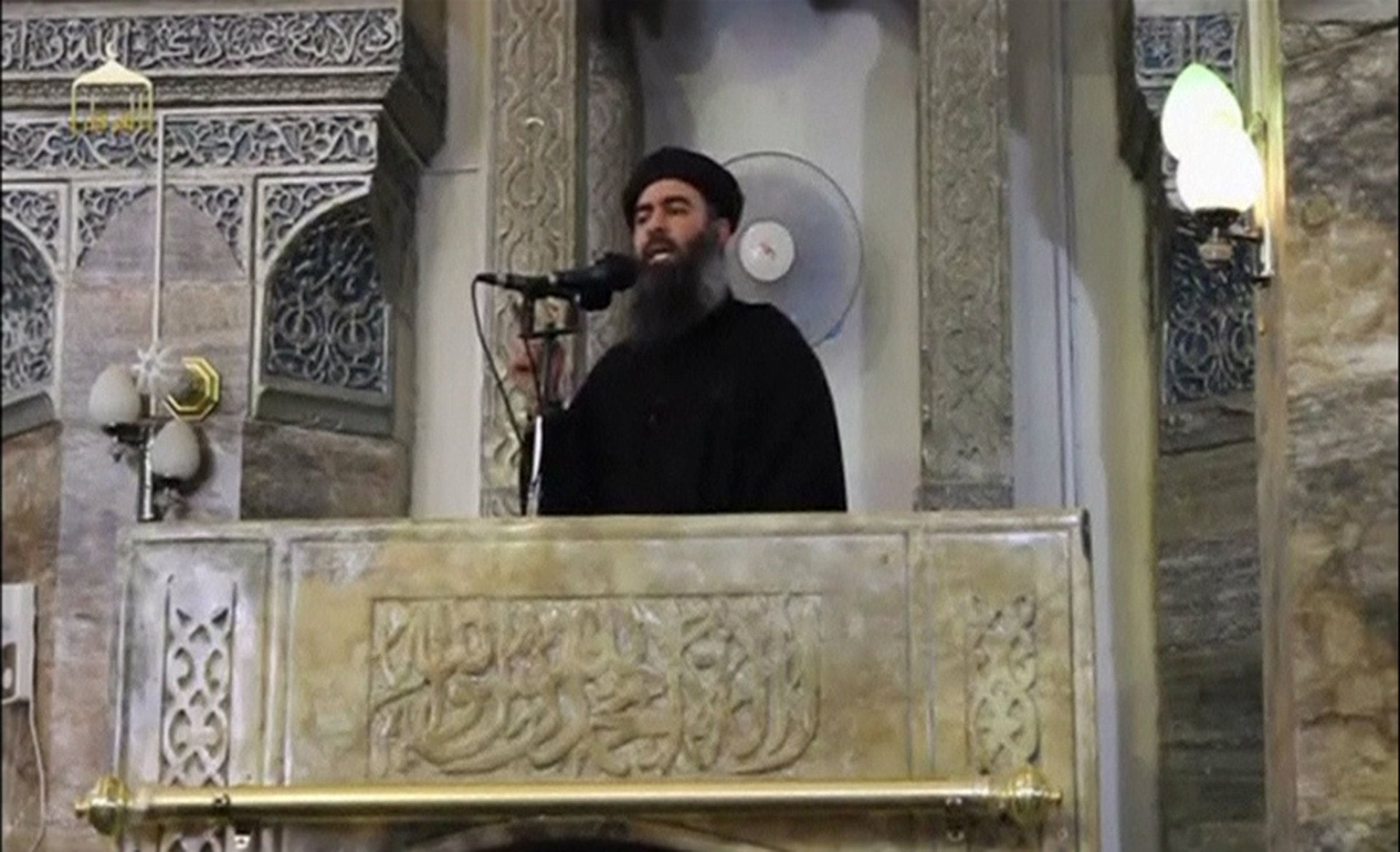What Baghdad must do if Baghdadi is dead
Reports that the Islamic State’s leader, Abu Bakr al-Baghdadi, is dead, or at least grievously wounded, must be treated with an abundance of caution: Iraqi and Kurdish officials are highly unreliable sources of news about ISIL. Remember when Iraqi prime minister Haider al-Abadi said the terrorist group, also known as ISIS, was planning to bomb the New York subway—only for US officials to rubbish the claim?


Reports that the Islamic State’s leader, Abu Bakr al-Baghdadi, is dead, or at least grievously wounded, must be treated with an abundance of caution: Iraqi and Kurdish officials are highly unreliable sources of news about ISIL. Remember when Iraqi prime minister Haider al-Abadi said the terrorist group, also known as ISIS, was planning to bomb the New York subway—only for US officials to rubbish the claim?
(The Iraqis are not alone in their wild speculation: The Daily Mail is suggesting Baghdadi may have taken a page from the script of the TV series Homeland, and faked his own death.)
But the fact that US officials have not summarily dismissed the Iraqi reports about Baghdadi allows for a modicum of optimism. If an American airstrike has indeed taken the self-styled “caliph of the Islamic State” off the battlefield, it could be a game-changer in the war against the terrorist group that controls large swathes of Syria and Iraq.
The timing is propitious. Things have not been going well for ISIL lately. In Syria, US-led airstrikes and Kurdish militias on the ground have halted the group’s geographic spread. In Iraq, government troops have achieved some important successes against the terrorists in recent weeks.
The arrival of 1,500 more US military “advisors” will help stiffen the spine of the Iraqi military, albeit not quite in the manner the White House claims: Ostensibly, they will be training Iraqi soldiers, but more usefully, their presence may hinder Shia leaders from appointing or promoting senior command on the basis of their sectarian affiliation. (That, as much as the problems with troop preparedness, was why the Iraqi army put up little resistance against ISIL earlier in the year.)
This would be an especially bad time for Baghdadi to be hors de combat, put out of action by injury or death.
Some Middle East experts argue that ISIL would simply replace Baghdadi with another leader and move on, as it has before. They argue that the group’s many-headed structure—autonomous fighting units reporting to a core leadership—makes it impervious to decapitation. But they underestimate Baghdadi’s power, both as ISIL’s chief executive and as its symbol.
Baghdadi became leader of the group (read a brief history here) when it was at its lowest ebb, and refashioned it into the world’s most successful terrorist organization. And his elevation to self-proclaimed “caliph,” absurd as it may seem to the vast majority of Muslims, made him the group’s most powerful recruiting tool. It is the combination of Baghdadi’s achievements on the battlefield and his faux-religious status that attracts wannabe mujahideen from across the world to ISIL’s black banners. It also inspires terrorist groups elsewhere to pledge allegiance to ISIL.
Baghdadi’s personal prestige is also crucial to the support ISIL enjoys among Iraqi Sunni tribes—and their support, in turn, is vital to ISIL’s success.
So if the ersatz caliph is truly out of commission, this would be a very good moment for the Iraqi government to step up efforts to peel away those tribes from Baghdadi’s coalition. Despite US president Barack Obama’s claim that the Shia-led government is “inclusive and credible,” prime minister Abadi’s outreach to the Sunnis has been tepid, at best.
Despite ISIL’s slaughter of the Albu Nimr tribe late last month, apparently a warning to other Sunnis, many in the Western province of Anbar seem prepared to fight the terrorists. In some instances, they have even fought alongside Shia militias.
But many Sunnis remain skeptical of Abadi’s intentions. Although his government has embraced the Shia militias—giving them arms and support even though some are known to have participated in the massacre of Sunnis—Abadi has kept the anti-ISIL Sunni tribes at an arm’s length. Tribal leaders complain they are getting neither the money nor the weapons they need to fight the terrorists.
It is especially galling for Sunnis that Abadi’s government has apparently granted Qassem Suleimani, commander of Iran’s notorious Quds Force, license to roam freely. Suleimani has Iraqi blood on his hands from the eight-year Iran-Iraq war, and his presence fuels the Sunni narrative that the government in Baghdad is controlled from Tehran.
Abadi’s decision to order the Shia militias back from the front lines is a good start. But it is only a start. To capitalize on Baghdadi’s absence—temporary or permanent—Baghdad must show much greater presence of mind.